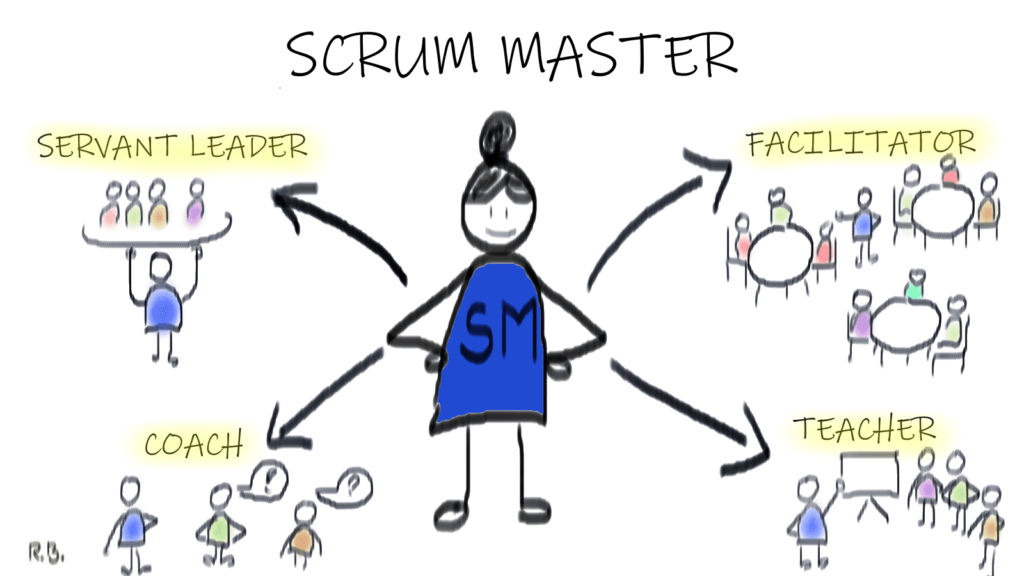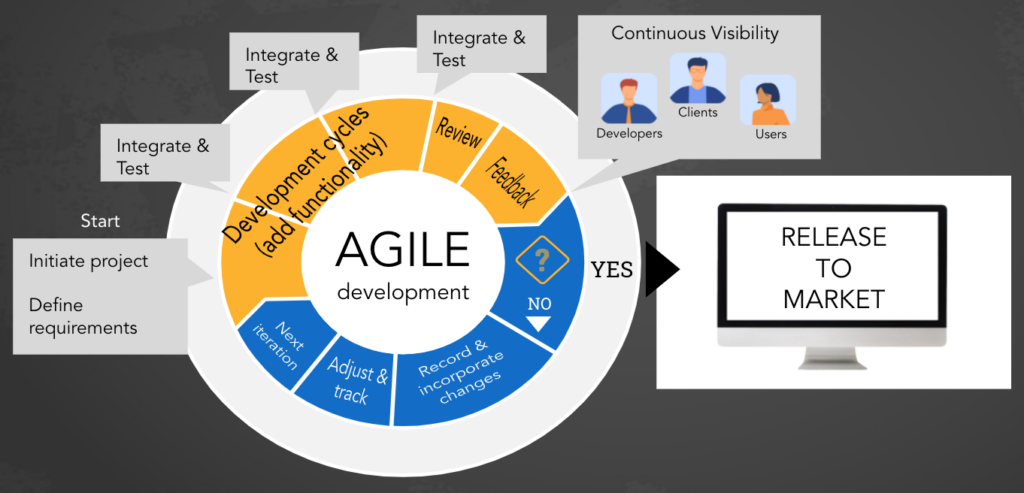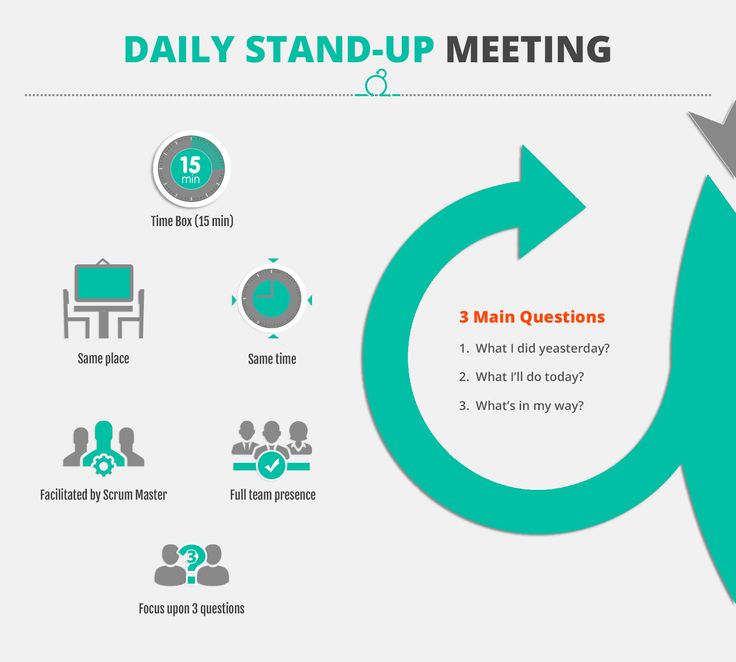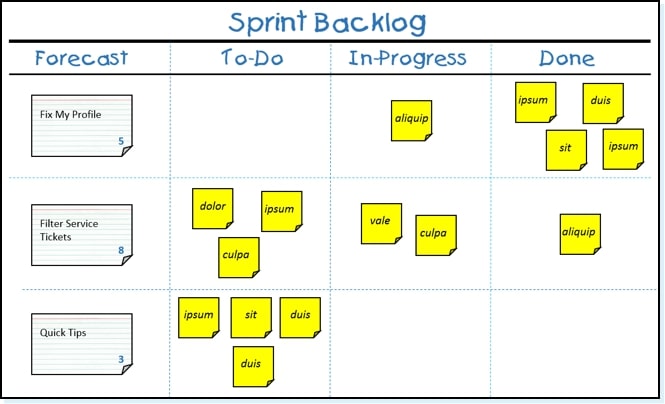Have you ever been to a team meeting where the group spends more time talking about their weekend plans than work?
Meetings like this are a waste of the company’s profits, and they’re also ineffective at moving the project forward.
This is where a Scrum Master comes in handy.
The overarching goal of a Scrum Master is to keep Scrum teams on track during their meetings. In doing so, they ensure that the main focus is the project and that no one ends up wasting company time talking about their after-work shenanigans.
In this article, we dive into the roles, responsibilities, and other key facets of the Scrum Master position.
What is the Role of a Scrum Master?
As a Scrum Master, your goal is to ensure the Agile team adheres to the Agile methodology of project management.

Credits: LetsScrumIt
In this capacity, you must commit yourself and the team to the values and practices that go hand-in-hand with Scrum.
However, you must also maintain flexibility and be open to changing your approach so long as it’s beneficial to improving the team’s workflow.
Let’s review five of the most critical roles and responsibilities of an influential Scrum Master and how they apply to the Scrum process.
Be an Agile Coach
Whether your team is new to agile project management or you’ve been using the methodology since day one, some of your team members haven’t grasped the nuances and intricacies of the practice.

As a Scrum Master, your role is to be a point of reference for your team members on all things Scrum. In doing so, you keep the team grounded in the principles of both Agile and Scrum to encourage more homogeneity.
This role becomes all the more important in cases where your company hires a new team member. It’s the Scrum Master’s responsibility to teach this new person the principles and practices of Scrum.
What’s more, it’s common for teams to lose sight of the objective of Scrum over time.
The Scrum Master then steps in to reinforce the Scrum methodology and help their teammates understand the importance of the practice today, tomorrow, and into the future.
Host A Daily Scrum
One of the primary aspects that make the Agile methodology effective is that it ensures that all team members know what’s going on. At all times, individuals within the Agile teams must know how their roles and responsibilities impact the entire team. They must also be willing to share that information with the rest of the team so that everyone knows how their role influences what others do.

Credits: Quick Scrum
The most effective way to do this is to host a daily stand-up meeting, which is a short meeting that brings everybody up to speed.
Daily stand-up meetings or Scrums don’t last longer than fifteen minutes.
Therefore, it’s your duty as a Scrum Master to ensure that everyone has a chance to brief their team members during this time.
Conduct Scrum Ceremonies
The Scrum Master must lead and engage their team during other ceremonies. This includes sprint planning meetings, sprint or iteration reviews, and retrospectives.
Each agile ceremony has its own goals that the Scrum Master must keep as their main priority during the meeting.
An effective Scrum Master is an individual who has the skills needed to plan, execute, and lead all Scrum events.
This does not mean that the Scrum Master is the one who must do all the talking. Instead, they encourage the entire team to share their respective accomplishments and goals.
Review Product Backlog
As the leader of the Scrum team, a Scrum Master must work alongside product owners to review and update the product backlog after each ceremony.

Credits: Scrum.org
Whether we’re talking about a daily stand-up, a sprint planning meeting, an iteration review, or a retrospective, it’s during these ceremonies that the Scrum Master learns about the current state of the project’s tasks.
Therefore, it’s common for the Scrum Master to itemize a list of tasks that affect the running of the product backlog and share it with the product owner. That way, the product owner knows how to groom the product backlog in accordance with the activities conducted by the Scrum team.
Report To Project Manager
After a Scrum ceremony, Scrum Masters report to the project manager on any progress, issues, or inefficiencies that they’ve become aware of.
This doesn’t have to be a formal written report. However, you must ensure that the project manager knows about the project’s current status at all times.
Depending on the project, a Scrum Master also reports to the product owner and other external stakeholders involved.
Solve Concrete Team Problems
Whether during a meeting or throughout a sprint, teams sometimes run into obstacles that prevent work from moving forward.
A Scrum Master must be motivated and ambitious. They must also work toward removing barriers that stand in their team’s way, a process known as ‘workflow improvement’.
Scrum Master Certification
It’s not always necessary to become certified as a Scrum Master. However, many Scrum Master certification programs exist to help potential Scrum Masters become more proficient at their job.
This type of certification is an entry-level credential used by organizations to train Scrum team members to understand Agile project management principles and practices on a deeper level.
Key Scrum Master Tips
A Scrum Master has their hands full. To help make your job easier, let’s review a few tips on keeping your next Scrum meeting on track.
1. Focus On The Product Backlog
The product backlog is a prioritized list of every task required to complete a project.
As a Scrum Master, whether you’re hosting a daily Scrum, a sprint planning meeting, a sprint review, or a retrospective, it’s essential to keep the product backlog as your main priority and topic of discussion.
What is your Scrum team working on? Are there any items that are falling behind schedule? Are there any roadblocks that are affecting the team?
These are questions that you must ask as a Scrum Master. It is also your responsibility to work with the product owner to review and revise the product backlog.
2. Understand Scrum Values
Although you already understand the Scrum and Agile methodologies, reviewing and challenging your knowledge is never a bad idea.
There’s no harm in beefing up your Scrum values by taking a certification course in case you haven’t already done so. If not, consider subscribing to a Youtube channel that pushes out engaging content on Scrum and Agile practices. Keeping up to date with the latest novelties and frameworks in the field helps you to remain current as a Scrum Master.
3. Use A Timer
While iteration reviews and sprint planning meetings tend to last for several hours, a daily scrum never takes more than ten or fifteen minutes.
Using a stopwatch or timer helps keep your Scrum meetings on track. At the same time, this helps the team improve their ability to communicate and work under pressure.
- Sprint planning meetings – Lasts one hour per week of iteration.
- Daily scrums – No longer than ten or fifteen minutes once per day.
- Iteration reviews – One hour per week of iteration.
- Sprint retrospectives – Forty-five minutes per week of iteration.
4. Help The Team
Scrum Masters facilitate team meetings and ensure that the project is moving forward as planned.
Therefore, your goal as a Scrum Master is to help the Scrum team through each sprint of an iteration.
Whether a team member has a simple question or the product owner has a problem, your job is to answer questions and solve these problems before they impact the project’s performance.
Succeed As A Scrum Master Today
In the end, being a Scrum Master means having to juggle several responsibilities.
However, it is a lucrative role that is integral to the success of Agile teams.
Do your best to remain up the date with the latest in Agile and Scrum to make sure that you lead your Scrum team in the best way possible.
But above all, remember that your role as a Scrum Master is to create an environment that allows everyone in the Scrum team to shine. Work alongside them to make sure everyone is on the same page, working hard to achieve the team’s overall goals.